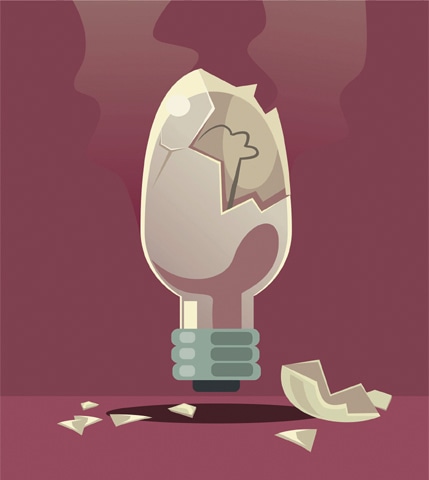
The power sector for the last decade has been marred by an inefficient energy mix, lack of a competitive bilateral market and an inefficient transmission and distribution system. Additionally, electricity is being purchased by Central Power Purchasing Agency Guarantee Limited (CPPAG) from Independent Power Producers (IPP) at higher tariffs. Failure to timely exploit hydro resources has forced the country to tilt towards expensive power generation through use of expensive fuels like high speed diesel, imported coal and LNG.
A higher interest rate with minimum barriers to flow of capital would be beneficial in the form of inflow of foreign capital. For an import-based economy like Pakistan, this would have a strengthening impact on the local currency and reduce input costs. However, given Pakistan’s growth rate and economic volatility, the marginal propensity of investors to invest is very low. Just increasing interest rate to induce investors to invest in Pakistan, along with a strengthened fiscal and monetary policy, may not achieve desired results.
The tariff in power sector has been envisaged under a two part tariff scheme i.e. Energy Purchase Price (EPP) and Capacity Purchase Price (CPP). EPP, including fuel expense and variable operational and maintenance cost, is primarily paid to the company for producing and delivering electricity to the national grid. On the other hand, CPP is a fixed cost (debt servicing, insurance, fixed operational and maintenance costs, and working capital financing cost) reimbursed to the company for establishing and maintaining the power plant facility.
A certain percentage of return on equity invested is also incorporated within it. In order words, all the actual variable and fixed costs incurred by IPPs in producing and delivering electricity are reimbursed and a certain percentage of return over equity invested is guaranteed.
The ever increasing circular debt due to high tariffs and an inefficient power distribution system is creating resentment among investors
Almost 85 percent of the project cost is the cost of imported machinery, equipment and services of technical experts. National Electric Power Regulatory Authority (Nepra) determines the project cost in dollars and converts it into local currency at reference exchange rate, which is the rate at date of tariff determination. All exchange losses thereafter become part of project cost. Therefore, any excess cost incurred by investor on account of variation in exchange rate during the construction of power project becomes part of total project cost.
With increasing project cost, the amount of financing required for the project automatically surges up. Not only does the investor have to borrow more, the equity investment in the project also increases due to regulatory restrictions that require total project cost to be financed in the ratio of 20-30pc equity and 70-80pc debt.
The cost of borrowing incurred by the IPPs is reimbursed over the life of the project financing. In case of local lending, it is indexed to Karachi Inter Bank Offer Rate (Kibor) and in case of foreign lending it is indexed to London Inter Bank Offer Rate (Libor) and any variation in the exchange rate.
Investors are offered guaranteed dollar based returns over equity investment. Paid to investors in local currency, this investment ranges from 15-20pc. In order to keep the dollar based return intact, any adverse variation in the exchange rate is reimbursed to IPPs thereby also contributing to an increase in tariff.
Additionally all local components of the tariff are indexed to local inflation and all foreign components of tariff are indexed to US inflation and exchange rate. Therefore any increase in interest rate and exchange rate has a direct impact on tariff.
The circular debt is mounting due to the higher power generation costs because of an expensive fuel mix, increasing interest rates, weakening of rupee, and lack of timely payments by power purchasers. The aggravating circular debt issue has compelled IPPs to finance operations by utilising the maximum limit of working capital facilities available to them, thereby rendering them unable to access finance from other resources.
This situation, coupled with higher working capital finance cost due to higher borrowing and increased interest rates, is jeopardizing IPPs that may default under their relevant concession agreements. Further, if a power purchaser is unable to make payments to IPPs within the due date, then for each day after the due date the power purchaser is required to pay an outstanding balance at a specific delay payment rate. The benchmark of which is Kibor plus agreed spread. Hence, any increase in interest rate would further burden the already cash starved power purchaser in meeting its payment obligations.
The ever increasing circular debt due to high tariffs and an inefficient power distribution system is creating resentment among investors. To attract further investment in power sector, particularly in power transmission sub-sector, additional incentives/securities are required. These measures would ultimately increase tariffs as well as the government’s contingent liability.
Electricity is one of the major factors of production for any business, particularly for Small and Medium Enterprises (SMEs) which are assumed to be the backbone of the economy. Any increase in cost or interrupted supply of electricity has a detrimental impact on their growth. The alternative to grid power is through the use of generators whose operational costs are very high. All businesses are impacted due to higher electricity costs and interrupted supply. In the larger context, this hinders GDP growth and ultimately renders the country’s products uncompetitive in international markets.
The writer is a chartered accountant based in Islamabad
Published in Dawn, The Business and Finance Weekly, April 15th, 2019














































